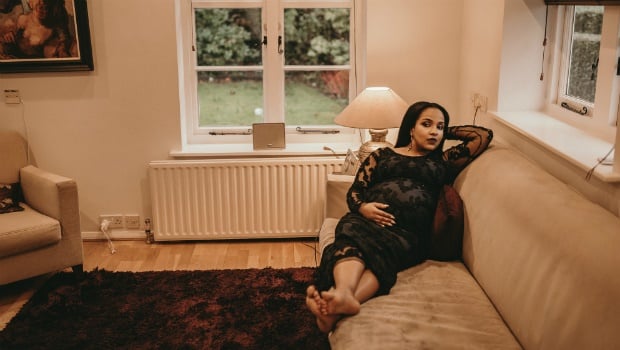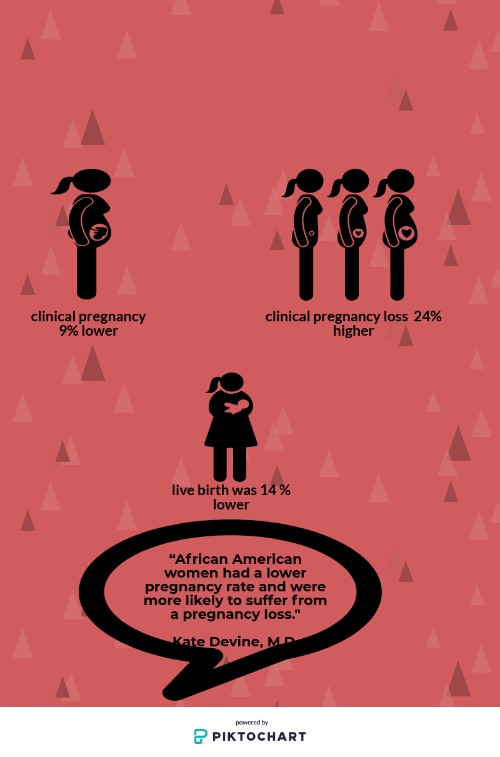
In October, a study presented at the American Society for Reproductive Medicine conference in Denver, United States revealed findings that black women have lower In-Vitro Fertilisation (IVF) success rates than white women and researchers did not know why.
The findings were based on a research pool of 36 217 black and white patients who had undergone IVF treatment at one D.C. area practice over the past 14 years.
These are what the numbers for black women look like compared to white women, according to this study:
READ MORE: Exactly how to talk to your doctor about fertility
A few of the speculated reasons for these regrettable numbers for hopeful black mothers include access issues, income gaps, cultural myths and even racism.
According to an InStyle article that weighed in on this study, "continuous exposure to racism dramatically impacts how black women experience the world and contributes to a wide range of racial health disparities."
As such, researchers of this study stressed the importance of delving deeper into the race aspect of these results as an isolated factor. Given both the U.S. and South Africa's history (and current reality) of racism, it's not a reach to attribute black women's IVF hurdles to it. This is not only in terms of the racial health disparities mentioned above, but also about the manner in which doctors relay information, misdiagnose or underplay symptoms when treating black women compared to white women.
Add to that the historical debt that has put black people at a disadvantage in terms of general access to amenities that should not even be luxuries. A relevant example is that fact that a typical course of IVF costs between R40 000 and R50 000 per cycle, which is a lump sum a very small group of middle class black women can afford compared to their white colleagues.
The article further puts the spotlight on founder and president of Fertility for Colored Girls, Dr. Stacey Edwards-Dunn's commentary on how "breeding myths and cultural expectations have long perpetuated stereotypes and biases that have shaped many people’s beliefs that black women (and men) are baby-making machines or hyper-fertile."
She added that “it is critical that more research considers the unique conditions of black women, such as cultural, physiological, sociological, race discrimination, gender and mistrust of medical institutions/doctors, and more.”
According to one of our local egg donor programs, Gift Ov Life, "the success rate of any IVF cycle will always be influenced by a patient’s medical characteristics, the quality of the sperm, the condition of the uterus and the treatment protocol." This is, of course, from a purely medical perspective.
They add that the most often documented success rate by South African fertility clinics "per fresh embryos transfer on day 5, with a confirmed heartbeat at 6 weeks is between 50%-70%."
Outside of medicine, however, do you think South African black women could be facing the same contributing factors to lower IVF success rates as women in the U.S.?
Sign up to W24’s newsletters so you don't miss out on any of our hot stories and giveaways.




 Publications
Publications
 Partners
Partners












